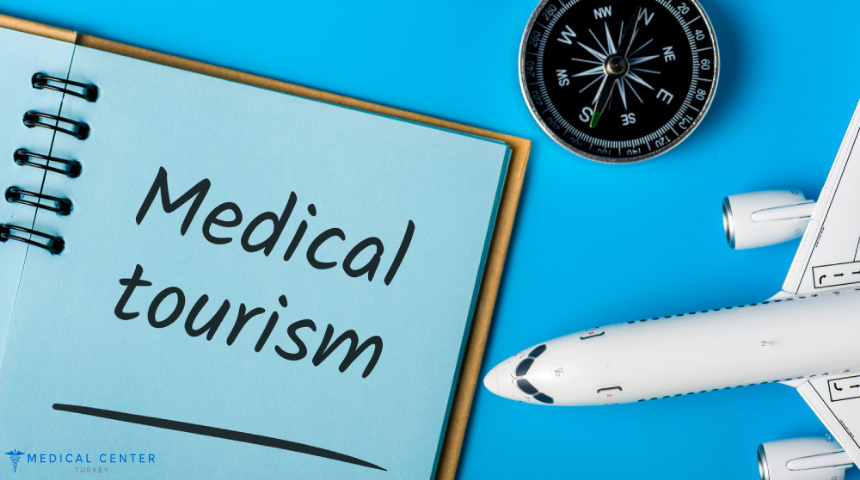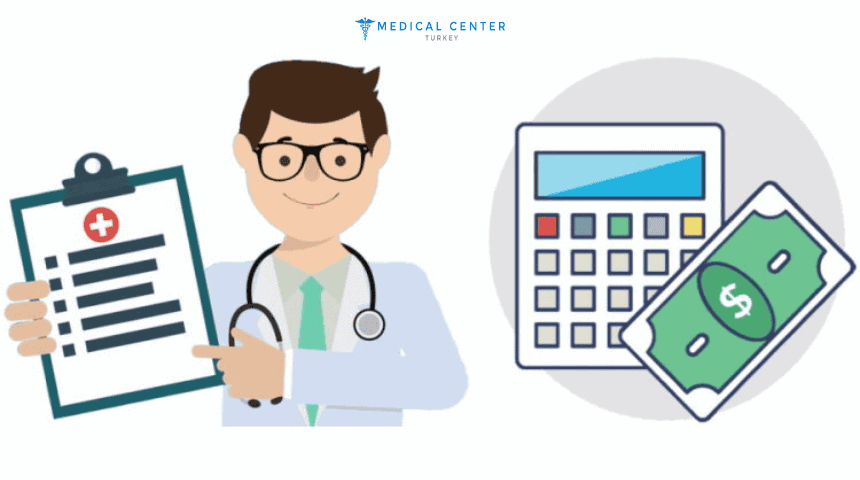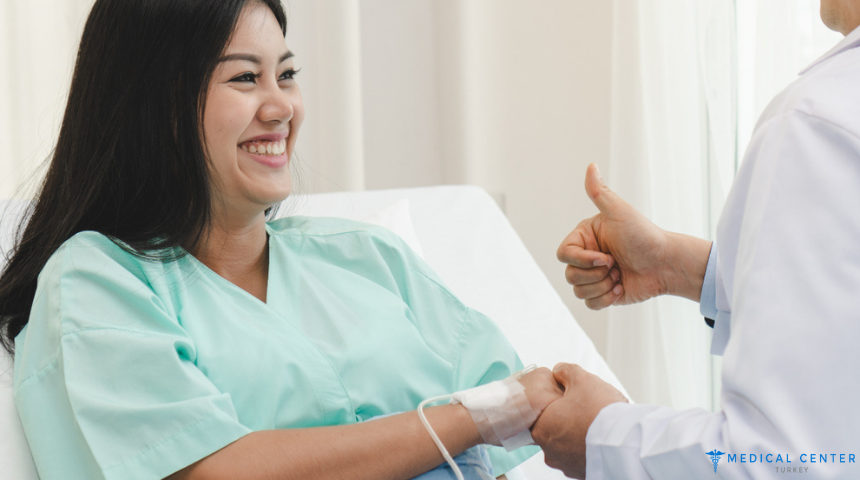How to Prepare for Your First Medical Tourism Trip: A Step-by-Step Guide
How to Prepare for Your First Medical Tourism Trip: A Step-by-Step Guide is an article that aims to give you all the information you do not know about How to Prepare for Your First Medical Tourism Trip: A Step-by-Step Guide and more. We kindly shared the main headings with you;
What is Medical Tourism?
Medical tourism refers to the practice of traveling to a foreign country to receive medical treatment or healthcare services. People often choose to go abroad for medical procedures because of factors such as lower costs, access to high-quality care, specialized treatments, or shorter waiting times than might be available in their home country. This growing industry includes a wide range of medical services, from elective procedures like cosmetic surgery to complex surgeries and treatments like organ transplants or fertility treatments.
In addition to medical procedures, medical tourism can also involve wellness and preventive treatments, such as spas, alternative therapies, or rejuvenation programs.
Medical tourism offers several potential benefits, such as:
- Cost Savings: Medical treatments abroad can be significantly cheaper than in many developed countries, even when factoring in travel expenses.
- High-Quality Care: Many countries have internationally accredited hospitals and clinics that meet or exceed global healthcare standards.
- Access to Specialized Procedures: Certain countries may offer treatments that are not widely available in the patient’s home country or have waiting lists for certain procedures.
- Vacation Recovery: Medical tourists often combine their treatment with a recovery period in a more pleasant or relaxing destination, making it a form of travel as well as treatment.
Understand the Medical Procedures and Costs
Before embarking on a medical tourism journey, it’s crucial to have a clear understanding of the medical procedures you’ll be undergoing and the associated costs. Here’s how to ensure you’re fully informed:
Research the Procedure
- Know What’s Involved: Understand the specific details of the procedure you need, including the steps involved, the recovery process, and the expected outcomes. Some treatments might be more complex or have longer recovery periods than others, so it’s essential to have a realistic expectation.
- Choose the Right Provider: Different countries and medical institutions may specialize in specific treatments. Look for hospitals or clinics that have a strong reputation for performing the procedure you need.
Consult with Your Doctor
- Get a Second Opinion: Before deciding to go abroad for treatment, consult with your current healthcare provider. They can give you a thorough understanding of your condition, the procedure options, and potential risks involved. In some cases, they may even provide advice on reputable facilities abroad.
- Clarify Pre- and Post-Procedure Care: Make sure you understand the entire process, including pre-procedure tests, post-surgery follow-up, and any medications required.
Cost Breakdown
- Initial Cost Estimates: The cost of the procedure itself can vary widely depending on the destination country, medical facility, and the complexity of the treatment. Get a detailed breakdown of what’s included in the quoted price (e.g., surgeon fees, anesthesia, hospital stay, post-op care).
- Additional Expenses: Factor in the costs of travel (flights, accommodation), meals, transportation, and any extra services (such as recovery programs or health supplements) that might be necessary during your stay.
- Insurance Coverage: Check if your health insurance will cover any part of the treatment abroad, or if you need to purchase additional travel insurance that includes coverage for medical procedures.
- Hidden Costs: Be aware of potential hidden costs such as unexpected follow-up treatments, medication, or complications that might arise during the recovery process.
Cost Comparison
- Compare Costs Across Countries: Medical tourism offers the opportunity to find cheaper options abroad, but prices vary even within countries. Compare prices in different cities or regions within the country you’re planning to visit to find the most cost-effective choice.
- Understand the Price Variability: Keep in mind that the cost of medical procedures can differ even at accredited hospitals. It’s important to ask for a comprehensive estimate that includes all related expenses, not just the base cost of the procedure.
Consider Long-Term Costs
- Follow-Up Care: Some procedures may require follow-up visits after you return home. Understand how these follow-up appointments or treatments will be managed, and whether the medical provider in the foreign country will assist with post-treatment care remotely or if you’ll need to return.
- Potential Complications: If any complications arise after the procedure, you may face additional costs for medical care, including travel back to the treatment center or consultations with specialists in your home country.
You can easily request a personalized treatment plan and receive your free quote by clicking the image below.
Consult with Your Primary Healthcare Provider
Before making the decision to travel abroad for medical treatment, consulting with your primary healthcare provider is one of the most important steps in ensuring your safety and well-being. Here’s why this step is essential and how to approach it:
Get a Thorough Medical Evaluation
- Assess Your Health: Your primary care doctor will conduct a thorough evaluation to assess whether you’re physically fit for the procedure you plan to undergo. This includes reviewing your medical history, current health status, and any pre-existing conditions that might affect the success of the treatment.
- Identify Potential Risks: Every medical procedure comes with risks, and your doctor can help identify any specific concerns based on your health. For example, if you have heart disease, diabetes, or any chronic condition, these may affect your ability to undergo certain treatments safely.
Ensure Compatibility with the Treatment Abroad
- Discuss the Procedure: Make sure your healthcare provider is aware of the exact procedure you plan to have abroad. They can provide valuable insights into whether the procedure is the right choice for you and whether it’s commonly performed in the country you plan to visit.
- Evaluate Alternative Options: Your doctor may suggest alternative treatments or procedures that could be performed at home, which might be just as effective and more cost-efficient, reducing the need for medical tourism.
- Review Medications and Allergies: Discuss any medications you’re currently taking or allergies you have. Some treatments may require adjustments in your medication regimen or additional precautions to avoid complications.
Ask for Recommendations
- Trusted Providers Abroad: If your doctor is familiar with medical tourism or has contacts in the healthcare industry, they may be able to recommend reputable doctors, hospitals, or clinics abroad. They can also provide advice on internationally recognized medical facilities and surgeons with high success rates.
- Get Referrals: If you’re considering specific procedures like surgery or specialized treatments, your primary care provider may refer you to a specialist or medical expert who has experience working with international patients. They can help you ensure that you’re receiving care from a competent and experienced healthcare professional.
Address Post-Treatment Care
- Plan for Recovery: One of the most critical aspects of medical tourism is post-procedure care. Your primary healthcare provider can help you plan for recovery and follow-up treatments after returning home. This could include physical therapy, ongoing monitoring, or medication adjustments.
- Monitor for Complications: Discuss how any potential complications will be monitored once you return home. Make sure that your doctor is prepared to manage your care if any issues arise after your treatment abroad.
Discuss Travel and Health Considerations
- Travel Readiness: Your primary doctor will also assess whether you are fit to travel, especially if the procedure requires significant recovery time. Certain medical conditions may make it more challenging to travel long distances or adjust to new environments.
- Vaccinations and Preventive Measures: Some countries may require specific vaccinations or preventive measures before you travel. Your healthcare provider can advise you on what vaccinations or treatments you may need before your trip.
Insurance and Legal Considerations
- Check for Insurance Coverage: Many health insurance policies don’t cover medical procedures abroad, or they may only cover emergency treatment. Your doctor can help clarify the extent of your current coverage and help you understand how to navigate the insurance process for medical tourism.
- Prepare for Emergencies: In rare cases, complications from medical procedures can arise while abroad. Consult with your healthcare provider to understand how to handle any potential medical emergencies during your trip and whether they can help coordinate care if necessary.
Evaluate Mental and Emotional Readiness
- Discuss Emotional Preparedness: Medical tourism can be a stressful and emotionally demanding experience. Speak to your primary healthcare provider about your mental health and how to best prepare for the emotional challenges of undergoing a medical procedure in an unfamiliar setting.
- Assess Support System: It’s crucial to have a support system in place during your medical journey. Your doctor can help assess whether you have the support you need from family, friends, or a healthcare team to manage your care and recovery.


Plan Your Travel and Accommodation in Turkey
Planning your travel and accommodation in Turkey is one of the most important steps when preparing for a medical tourism journey. Proper organization ensures a smooth, stress-free experience before, during, and after your medical procedure. Here is a complete guide on how to plan your travel and accommodation in Turkey for medical treatment.
Choose the Right Travel Dates
Schedule Around Your Procedure
When you plan your travel and accommodation in Turkey, make sure your arrival aligns with the date of your medical procedure. Arrive a few days early to adapt to the climate, time zone, and environment.
Avoid Pre-Surgery Stress
Choose travel dates that allow you to rest. Rushed schedules can cause unnecessary fatigue before your treatment.
Consider Recovery Time
Some treatments require follow-up visits or extended healing periods. Make sure your stay in Turkey covers your entire recovery phase.
Book Comfortable Flight Arrangements
Direct Flights When Possible
Direct flights reduce stress and travel time—an important factor when preparing for medical treatment.
Prioritize Comfort
Seats with extra legroom or premium options help you feel more comfortable, especially before or after a procedure.
Travel Insurance
Travel insurance protects you against delays, cancellations, or unexpected medical situations during your trip to Turkey.
Arrange Airport Transfers in Advance
Pre-Booked Transportation
Many medical tourism providers in Turkey offer airport pick-up and transfer services. Pre-booking ensures a smooth start to your trip.
Consider Mobility Needs
If your procedure affects your mobility, choose accessible vehicles such as wheelchair-friendly transfers.
Know Your Local Transport Options
Familiarize yourself with taxis, ride-sharing apps, or shuttle services for easy movement between your accommodation and the clinic.
Choose the Right Accommodation in Turkey
Stay Close to Your Medical Facility
Selecting accommodation near your clinic saves time and avoids unnecessary travel during recovery.
Look for Recovery-Friendly Spaces
Quiet, clean, and comfortable rooms support healing. Consider hotels or recovery suites designed specifically for medical tourists.
Essential Amenities
Comfortable bedding, room service, kitchenettes, and privacy contribute to a smooth recovery.
Flexible Booking Policies
Medical treatments can change unexpectedly. Choose accommodation with free cancellation or flexible date changes.
Explore Accommodation Types
Hotels with Medical Services
Some hotels in Turkey offer post-treatment support, mobility assistance, and even in-room nursing services.
Short-Term Rentals
Apartments or private rooms provide more independence, especially for longer stays.
Medical Tourism Packages
Many clinics offer bundled packages that include accommodation, clinic transfers, and aftercare services—ideal for stress-free planning.
Budget Your Travel and Accommodation
Calculate Total Costs
Your budget should include flights, accommodation, transportation, meals, and potential aftercare services.
Research Local Prices
Turkey is an affordable destination, but costs vary by city. Planning early helps avoid unexpected expenses.
Look for Medical Tourism Discounts
Some hotels offer special rates for medical tourists or patients referred by clinics.
Ensure Local Medical Support
Have a Local Medical Contact
For treatments requiring follow-up care, make sure you have access to a local physician or clinic contact.
Know Your Follow-Up Plan
Check whether follow-up appointments will happen in the clinic, at your accommodation, or through telemedicine.
Health and Safety Considerations
Check Local Health Conditions
Research climate, environmental factors, and required vaccinations before traveling to Turkey.
Keep Emergency Contacts Handy
Have the numbers of local emergency services, your clinic, and your consulate readily available.
Prepare for Recovery and Mobility
Choose Accessible Accommodation
Ensure your hotel or rental has elevators, ramps, or grab bars if needed.
Stay Near Essential Services
Pharmacies, markets, and restaurants should be easily accessible to avoid unnecessary movement after your procedure.
Allow Time to Adjust Before Treatment
Arrive a few days early to adapt to the local time zone and environment. This reduces stress and helps your body prepare for the medical procedure.
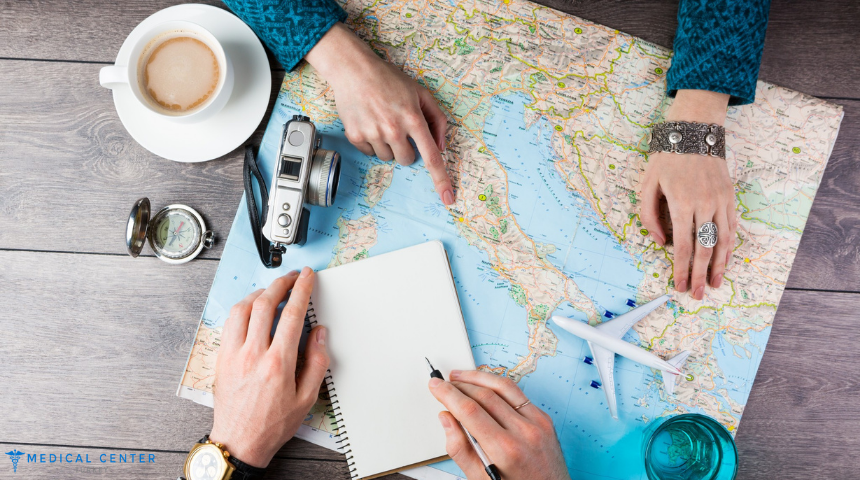

Arrange for Post-Procedure Care and Recovery
Planning for post-procedure care and recovery is a crucial part of the medical tourism journey. Ensuring that you have the necessary support and resources to recover fully will help ensure a smooth transition back to your normal life after treatment. Here’s how to make arrangements for post-procedure care and recovery:
Understand the Recovery Process
- Discuss Recovery Time: Before undergoing the procedure, it’s essential to understand the expected recovery time. Some treatments may require only a few days of rest, while others may involve weeks or even months of recovery. Knowing this in advance will help you plan your trip and ensure you have adequate time to heal.
- Post-Procedure Instructions: Ask your medical provider for detailed instructions on the aftercare process, including wound care, medication, restrictions on physical activity, and any lifestyle changes that may be required during recovery.
- Pain Management: Discuss pain management options with your healthcare provider. Some procedures may involve significant discomfort post-surgery, so make sure you understand the best way to manage pain while recovering.
Plan for Post-Treatment Follow-Ups
- Schedule Follow-Up Appointments: After your procedure, you may need follow-up visits to monitor your progress, remove stitches, or check for complications. Ensure that these appointments are scheduled and that you know where and how they will take place.
- Coordinate with Home Healthcare Providers: If necessary, make arrangements with healthcare providers back home for any follow-up care or check-ups. Share your medical records and procedure details with them so they are fully informed of your treatment and recovery process.
- Remote Consultation Options: Some international medical facilities offer virtual consultations for post-treatment follow-ups. Check if this option is available so you can have access to professional advice even after returning home.
Prepare for Medical Supplies and Medications
- Ensure Access to Medication: After your procedure, you may need prescription medications to manage pain, prevent infections, or aid in healing. Ensure you have access to the necessary medications while abroad and once you return home.
- Stock Up on Supplies: If your recovery requires special supplies (e.g., bandages, compression garments, mobility aids), make sure you know where to get them and whether they are available in the destination country or if you need to bring them with you.
- Understand Medication Risks: Some medications may have interactions or side effects that could affect your recovery. Discuss these risks with your doctor and ensure that you understand any potential complications.
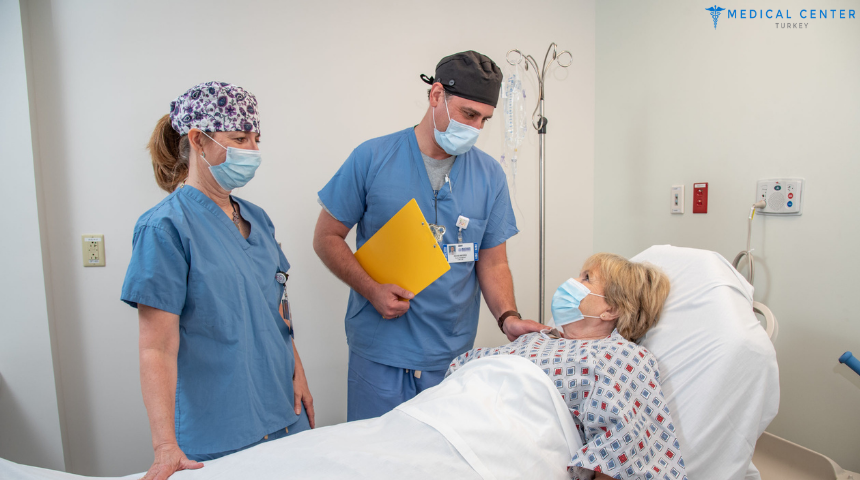

Arrange for Transportation and Accommodation
- Post-Treatment Mobility: Depending on the procedure, you may not be able to move around freely after treatment. Ensure that you have reliable transportation arranged to and from medical appointments during the recovery period, especially if your mobility is limited.
- Accommodation During Recovery: If your treatment requires extended rest or follow-up care in the destination country, arrange for accommodation that supports your recovery needs. This may involve booking a hotel with accessibility features or renting a space that allows for a comfortable recovery environment.
- Recovery Assistance: Depending on the type of procedure, you may need assistance during recovery (e.g., help with personal care, meals, or transportation). Consider hiring a caregiver or asking a family member or friend to accompany you during your recovery period.
Set Up Communication with Your Healthcare Provider
- Stay in Touch: Set up a system for communication with your healthcare provider, especially if you’re traveling abroad for treatment. Many medical centers provide 24/7 support or allow for communication via email or phone for any urgent questions or concerns after the procedure.
- Telemedicine Services: If follow-up appointments cannot be done in person, ask your medical provider if they offer telemedicine services, so you can have remote check-ups and ensure everything is healing correctly.
- Emergency Support: In case of any emergencies, ensure that you know how to contact your healthcare provider, both in your destination country and once you return home. Additionally, research emergency medical services in the destination country, just in case.
Create a Healthy Recovery Environment
- Rest and Nutrition: Plan for a conducive recovery environment where you can rest and follow any dietary recommendations to aid your healing. Whether it’s staying in a comfortable place with minimal distractions or having healthy meals delivered, make sure your environment supports your recovery needs.
- Manage Stress: Recovery from a medical procedure can be stressful, and stress can slow down the healing process. Plan for relaxation techniques or activities that promote mental well-being, such as meditation, light exercise (if approved), or enjoying the local scenery.
Plan for Emergency Care
- Emergency Contacts: While rare, complications may arise during recovery. Make sure you have emergency contacts in place, including local hospitals, your medical provider abroad, and a healthcare provider back home who can assist if necessary.
- Travel Insurance Coverage: Verify that your travel insurance covers emergency care and complications related to your procedure, both during your time abroad and after your return home. This may include medical evacuation or coverage for unforeseen post-operative treatments.
Budget for Recovery Expenses
- Prepare for Unforeseen Costs: During the recovery process, you may incur additional expenses, such as extra medications, follow-up care, or extended accommodations. It’s important to budget for these potential costs to avoid financial strain.
- Check Insurance Coverage for Post-Op Care: Make sure your insurance policy covers post-operative care, whether you are still abroad or after returning to your home country. Some policies may include provisions for follow-up treatment or complications.
Final Tips for a Successful Medical Tourism Experience
Embarking on a medical tourism journey can be a rewarding experience, offering high-quality care at a lower cost and access to specialized treatments. However, to ensure the process is smooth and stress-free, here are some final tips to help you have a successful medical tourism experience:
Do Thorough Research
- Investigate Healthcare Providers: Ensure that the medical provider you choose is internationally accredited and has experience with the procedure you are seeking. Look for reviews, testimonials, and success stories from other patients who have traveled abroad for treatment.
- Check Facility Standards: Ensure that the medical facility you’re considering meets global healthcare standards. Accreditation from international bodies like the Joint Commission International (JCI) is a good indicator of quality care.
Choose the Right Destination
- Consider Healthcare Quality and Costs: Some countries specialize in specific treatments and offer excellent healthcare at affordable prices. Popular destinations for medical tourism include Thailand, Mexico, India, Turkey, and Singapore. Each offers unique benefits, so choose a destination that suits your procedure and your personal needs.
- Factor in Language and Communication: Ensure that language barriers will not hinder your understanding of the treatment process. Many medical tourism destinations have English-speaking staff, but it’s always a good idea to verify this beforehand.
- Understand Local Healthcare Regulations: Familiarize yourself with the medical regulations and patient rights in the destination country. Knowing what to expect regarding legal and ethical practices can help avoid surprises.
Ensure Clear Communication with Your Medical Team
- Ask Questions: Communicate with your healthcare provider clearly and openly. Ask about the procedure, risks, expected outcomes, and aftercare. Don’t hesitate to ask for clarifications if you don’t understand something.
- Document Everything: Keep a detailed record of your medical history, all communications with your healthcare provider, and any written estimates or agreements regarding the cost of your treatment. This documentation will help ensure transparency and avoid confusion.
- Confirm Your Appointment and Payment: Double-check your procedure appointment, including dates, times, and any pre-treatment requirements. Also, confirm your payment terms to avoid unexpected financial issues.
Prepare for Travel and Stay
- Plan for Travel Comfort: Consider travel comfort during your journey. After a medical procedure, you might experience fatigue, so choose comfortable flights and transportation. Consider the duration of your flight and the time zone difference, as this can affect your energy levels.
- Choose Accommodation Wisely: Stay in a place that’s close to the hospital or clinic where you’ll be treated, especially if you need frequent follow-up appointments. Ensure your accommodation has the necessary amenities to support your recovery, such as a comfortable bed and easy access to medical facilities.
- Budget for Unexpected Costs: Although medical tourism can offer significant savings, unexpected expenses (such as complications, longer stays, or additional treatments) can arise. It’s wise to budget a bit more than expected to cover such costs.
Prepare for the Emotional and Psychological Aspects
- Mental Preparation: Undergoing medical treatment abroad can be emotionally taxing. Make sure you’re mentally prepared for the process and any challenges that might come with being away from home during recovery.
- Seek Support: Having a friend, family member, or caregiver accompany you can provide essential emotional support during the trip. You’ll have someone to assist you in navigating unfamiliar places and to ensure you’re comfortable post-treatment.
- Consider the Impact on Family: If you’re traveling alone, make sure that your family is updated regularly about your condition. This communication helps ease any worries back home and ensures your recovery is well-supported.


Understand Legal and Ethical Aspects
- Know Your Rights: Familiarize yourself with your rights as a medical tourist. Understand what to do if something goes wrong, how to file complaints, and what legal recourse you have if there are issues with your care.
- Legal Documentation: Keep all legal documents related to your treatment, including consent forms, medical records, and travel insurance policies. In case of any complications, these documents will be crucial for resolving issues.
Consider Travel Insurance
- Get Comprehensive Insurance: Ensure that your travel insurance covers medical treatment abroad, including emergency care, medical evacuation, and complications that may arise post-procedure. Verify that the insurance policy also covers follow-up visits and recovery care.
- Check for Medical Tourism-Specific Coverage: Some insurers offer plans specifically for medical tourism, which can cover medical treatments, emergency medical services, and post-operative care abroad.
Focus on Recovery
- Take it Easy: After your procedure, focus on rest and relaxation. Avoid any strenuous activities that may interfere with your recovery. Follow your healthcare provider’s post-treatment instructions carefully to ensure the best possible outcome.
- Stay in Touch with Your Doctor: Stay in touch with your healthcare provider for any follow-up care needed after returning home. Virtual consultations or check-ins can help ensure that your recovery continues as planned.
- Avoid Stress and Strain: Medical recovery can be slow, so try to avoid stressors that could hinder the healing process. This includes avoiding too much social interaction or work-related pressures while you’re recovering.
Be Aware of Cultural Differences
- Respect Local Customs and Traditions: Understanding and respecting the culture of the destination can improve your overall experience. Be mindful of local customs, especially in medical settings where certain practices may differ from what you’re accustomed to.
- Ask for Translation Help: If there is a language barrier, don’t hesitate to ask for a translator to help you communicate effectively with healthcare providers, ensuring clear understanding of medical procedures and instructions.
Have Realistic Expectations
- Expect the Best, Prepare for the Worst: While medical tourism offers excellent opportunities, it’s important to have realistic expectations about the procedure, the results, and the recovery process. Prepare for some challenges and remember that healing takes time, regardless of the setting.
- Stay Flexible: Be open to changes in your plan. Sometimes delays happen, or recovery takes longer than expected. Being flexible can help reduce frustration and ensure you stay calm throughout the process.
If you would like to receive more detailed information or have any questions, feel free to contact us anytime. Simply click the link below.

